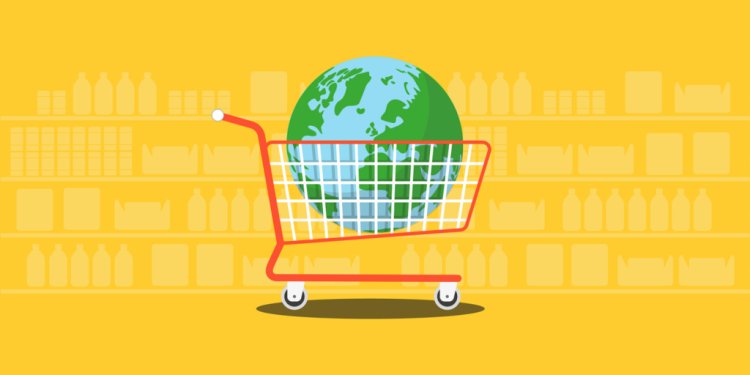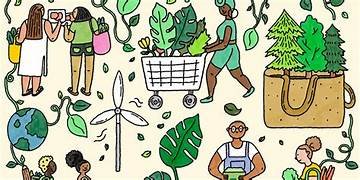Adopting Conscious Consumerism: Making Moral and Sustainable Decisions in an International Market

Conscious consumerism has become a potent force for change in a time when social and environmental concerns are becoming more well known. Ethical and sustainable practices are given top priority by conscious customers who want to make well-informed decisions that support their beliefs and have a good influence. A more just, ecological, and compassionate world depends more and more on accepting conscientious consumerism as the world economy grows.
Understanding Conscious Consumerism: This attitude is based in awareness, empathy, and responsibility and goes beyond conventional buying decisions. It entails thinking through, from manufacture and distribution to disposal, the social, environmental, and ethical ramifications of goods and services. Knowing their part in influencing a more sustainable future, conscious consumers aim to reduce damage and enhance benefits from their purchase patterns.
Making Morally and Environmentally Responsible Decisions
Many elements influence decisions to buy that are included in conscious consumerism:
- Ethical Labor Practices: Encouraging businesses that give labor rights, safe working conditions, and fair pay for workers throughout the supply chain top priority advances social justice and worker dignity.
- Environmental Sustainability: Choosing goods and companies dedicated to decreasing carbon emissions, protecting natural resources, minimizing environmental effect, and putting sustainable production methods into place helps to preserve biodiversity and the environment.
- Animal Welfare: Choosing products free of animal testing and exploitation, cruelty-free and animal-friendly, shows sympathy for animals and encourages more humane treatment in sectors including food, fashion, and cosmetics.
- Local and Fair Trade: Giving fair trade and locally sourced goods first priority helps small-scale producers, builds community resilience, and guarantees workers in developing nations receive fair pay and opportunities.
- Reduction of Consumption and Minimalism: Reducing consumption and adopting minimalist lifestyles help to reduce waste, save resources, and encourage a reuse, recycle, and repurpose culture.
Conscious consumerism has a lot of potential for good, but it also has to deal with issues like greenwashing, when businesses make up their environmental credentials in order to draw in customers. Furthermore, there can be obstacles for specific groups because ethical and sustainable choices are occasionally less available or inexpensive.

But the emergence of conscious consumerism has encouraged responsibility and creativity in the market space. As customers want it, businesses are embracing ethical certifications, eco-friendly procedures, and open supply chains more and more. Furthermore enabling customers
to evaluate products, obtain information, and hold businesses responsible for their deeds are technology and digital platforms.
Empowering Change: Systemic change can be sparked by individual acts taken in concert to build a more just and sustainable future. Those that adopt mindful consumption can:
- Inform themselves: Keep up with industry standards, social and environmental concerns, and the effects of customer decisions.
- Speak up for reform: Demand from companies and politicians openness, responsibility, and moral behavior using their purchasing power.
- Support ethical brands and initiatives:Choose goods and services that put people, the environment, and animals first, and back programs that advance social justice and sustainability.
- Promote community and cooperation: To increase effect, exchange resources, and promote structural change, become involved with like-minded people, groups, and organizations.
CONCLUSION
In a global market driven by profit and consumption, conscious consumerism is a potent motivator for good change. By choosing morally and sustainably, people can together change industries, advance social and environmental justice, and create a more just and caring society. One thoughtful purchase at a time, we as conscious consumers have the ability to create the world we wish to see.
What's Your Reaction?



















